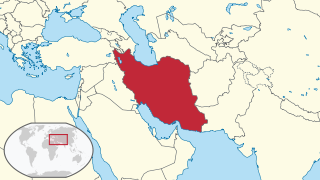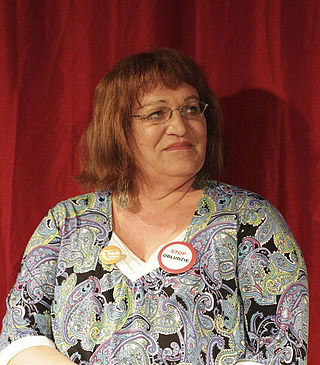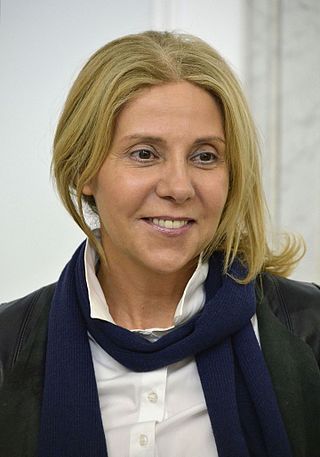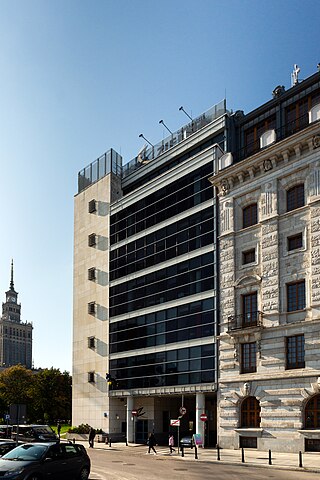
Fundacja Trans-Fuzja is a Polish LGBT rights organization. It was founded in February 2008 and acquired the status of a public interest organisation (OPP), working to better the wellbeing of transgender people in Poland. [1]

Fundacja Trans-Fuzja is a Polish LGBT rights organization. It was founded in February 2008 and acquired the status of a public interest organisation (OPP), working to better the wellbeing of transgender people in Poland. [1]
Trans-Fuzja works to improve the living conditions of transgender people in Poland and support them and their relatives through the transition process. [2] The foundation offers psychological support and provides legal advice for judicial gender reassignment and other legal aspects of transition. It also conducts trainings and workshops for schools and companies that want to educate their employees on inclusivity and encourages local establishments to be vocal about being safe places for transgender people. [3]
Trans-Fuzja promotes education in the field of gender studies, funding publications and creating pamphlets that help people navigate the early stages of their transitions. [4] In 2014 Trans-Fuzja conducted a study on the experiences of transgender people in Poland in accessing health care services, and in 2015 a study of the situation of transitioning youth at schools.
In 2009 Trans-Fuzja and the Campaign Against Homophobia organised a Festival of Rainbow Families to show the diversity of families and relationships that exist in Poland. [5]
It also organises campaigns aimed at counteracting transphobia and abolishing discriminatory laws. In 2012, Trans-Fuzja, together with member of parliament Anna Grodzka, prepared a draft of a Gender Recognition act, which was passed in Sejm on the 10th of September 2015. However, the act was vetoed by President Andrzej Duda on 2 October 2015 and ultimately did not come into being. [6] [7]
In November 2013, the Office of the Polish Ombudsman hosted a conference titled "European standards and good practices in gender reassignment", co-organised by Trans-Fuzja, the RPO Adam Bodnar and the Council of Europe. [8]
Terms in office of the management last three years, and, as chairpersons, there have been:

Transgender rights in Iran are limited, with a narrow degree of official recognition of transgender identities by the government, but with trans individuals facing very high levels of discrimination, from the law, the state, and from the wider society.
Human rights in Poland are enumerated in the second chapter of its Constitution, ratified in 1997. Poland is a party to several international agreements relevant to human rights, including the European Convention on Human Rights, the Universal Declaration of Human Rights, the Helsinki Accords, the International Covenant on Civil and Political Rights, the International Covenant on Economic, Social and Cultural Rights and the Convention on the Rights of the Child.

Anna Grodzka is a Polish politician. A trans woman, she was elected to the Sejm in the 2011 Polish parliamentary elections as a candidate for the left-liberal Palikot's Movement, and was the first openly transgender Member of Parliament in Poland, and the third openly transgender member of a national parliament worldwide, after Georgina Beyer and Vladimir Luxuria (2006–2008). She was believed to be the only remaining transgender member of parliament until Nikki Sinclaire outed herself in November 2013.
The Polish Communist Party, or the Communist Party of Poland, is an anti-revisionist Marxist–Leninist communist party in Poland founded in 2002 claiming to be the historical and ideological heir of the Communist Party of Poland, Polish Workers' Party and the Polish United Workers' Party.

Tomasz Kitliński is a Polish political philosopher, cultural and social analyst, and civic activist. He was a lecturer and trade unionist at Maria Curie-Sklodowska University: since 2023 he has been Professor at the Academy of the Arts in Szczecin. He is also an author of books, articles, petitions and letters of protest. In his research and teaching, he deals with contemporary society, culture and politics, intellectual history, literary and critical theory, art practice, religious studies and social anthropology. In his activism, he champions women's, LGBT, labour and refugee rights and participation.

Grzegorz Michał Braun is a Polish politician. He has served as a member of the Sejm for Rzeszów and as Chairman of the Confederation of the Polish Crown since 2019. He has been a Member of the European Parliament (MEP) since 2024.

Left Together is a social democratic political party in Poland.

Adrian Tadeusz Zandberg is a Polish historian, computer programmer, doctor of humanities, and left-wing politician serving as a member of the Sejm for Warsaw I. He is one of the co-leaders of Left Together.

Barbara Dolniak is a Polish politician who currently serves as the Deputy Marshal of the Sejm of the Republic of Poland, a position she has held since 2015. She graduated with a law degree from the University of Silesia in Katowice. In her postgraduate studies, she graduated with a focus in European Union Law and Judicial Application. After graduating, Dolniak became a lawyer and a judge in the District Court of Katowice, and served in that role for 30 years.

The Citizens of Poland is an informal civic movement in Poland engaged in pro-democracy actions and anti-fascist movement, opposed to the actions of the government led by the Law and Justice (PiS) party. Citizens of Poland practice non-violent civil disobedience.
The Confederation of the Polish Crown, often shortened to The Crown, is a monarchist and far-right political party in Poland. It is led by Grzegorz Braun.

The Second Cabinet of Mateusz Morawiecki was the government of Poland, headed by Prime Minister Mateusz Morawiecki, since being sworn in by President Andrzej Duda on 15 November 2019 until 27 November 2023. The Prime Minister delivered a statement to the Sejm on 19 November 2019 before obtaining a vote of confidence with 237 of the 460 MPs voting in the affirmative.

OKO.press is a Polish investigative journalism website created on 15 June 2016. The name is a word play on oko, Polish for eye, and an abbreviation for "Ośrodek Kontroli Obywatelskiej".
Szymon Hołownia's Poland 2050 is a centrist to centre-right political party in Poland.

On 7 August 2020, a protest against the arrest of LGBT activist Margot led to a confrontation with police in central Warsaw, Poland, which resulted in the arrest of 47 others, some of whom were protesting, and others who were bystanders. The event was called Tęczowa Noc – translated as Rainbow Night – and was dubbed "Polish Stonewall" by some outlets, in an analogy to the 1969 Stonewall riots.

The 2020–2021 women's strike protests in Poland, commonly called the Women's Strike, were anti-government demonstrations and protests in Poland that began on 22 October 2020, in reaction to a ruling of the Constitutional Tribunal, mainly consisting of judges who were appointed by the ruling Law and Justice dominated United Right, which tightened the law on abortion in Poland. The ruling made almost all cases of abortion illegal, including those cases in which the foetus had a severe and permanent disability, or an incurable and life-threatening disease. All-Poland Women's Strike was charged by the authorities for having illegally organised the protests.
Ordo Iuris is an ultra-conservative Polish Catholic legal organization and think tank.

Roman Malinowski was a Polish politician and economist. He served as Deputy Prime Minister from 1980 to 1985, Chairman of United People's Party from 1981 to 1989, and Marshal of the Sejm from 1985 to 1989.

The Foundation for German-Polish Cooperation, an organization established 1991 by the governments of the Republic of Poland and the Federal Republic of Germany, provides financial support for initiatives that bring Poles and Germans together.